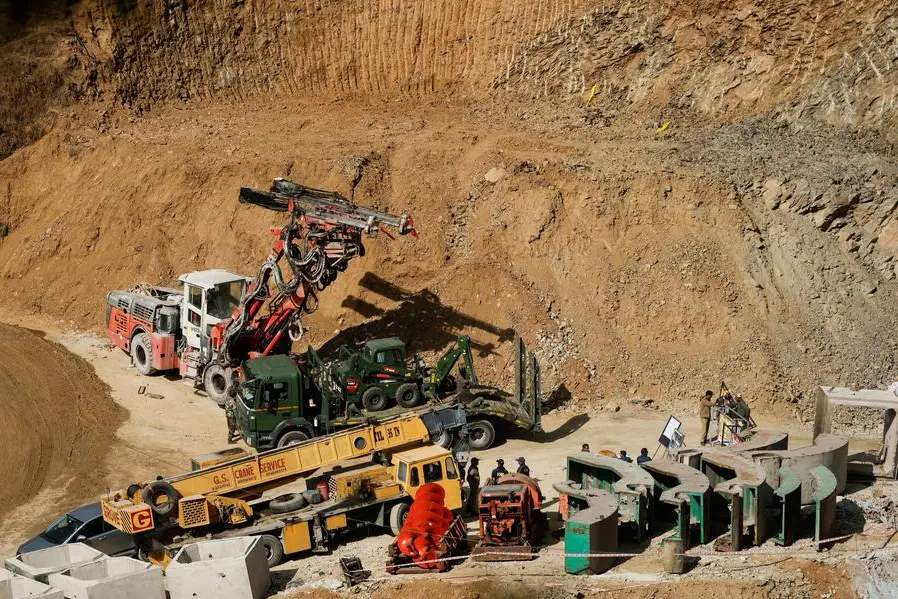PHOTO
Wet weather expected on Monday could mean more complications for the rescue of 41 construction workers trapped in a tunnel in the Indian Himalayas for more than two weeks but rescue leaders said they are prepared to deal with it.
The workers, from some of India's poorest states, have been stuck in the 4.5 km (3 miles) tunnel in Uttarakhand state since it collapsed on Nov. 12.
Bad weather was approaching with thunderstorms, hail and lower temperatures expected in the mountains but rescue organisers said they would handle it.
"They are trained in working in every situation so that's not a worry for us," said Mahmood Ahmad, managing director of the NHIDCL company, which is building the tunnel and helping with the rescue, referring to rescue teams.
The 41 trapped men have been getting food, water, light, oxygen, and medicines through a narrow pipe but efforts to dig them a tunnel to bring them out have run into a series of snags.
Rescuers trying to drill a tunnel horizontally through the rocks trapping the men have been plagued by damage to their machinery and have resorted to drilling by hand, after clearing away the broken equipment.
On Sunday, they opened another route to the men, aiming to drill a shaft straight down from the top of the mountain above them to get them out.
"Difficulties will come, difficulties have been coming, but we are prepared for it," said Jasvant Kapoor, a general manager of the SJVNL drilling company which is in charge of the new shaft.
As well as the thunder and hail, cold weather is setting in with a minimum of 9 degrees Celsius (48.2 degrees Fahrenheit) expected on Monday.
The tunnel is part of the Char Dham highway, one of Prime Minister Narendra Modi's most ambitious projects, aimed at connecting four Hindu pilgrimage sites through 890 km of roads.
Authorities have not said what caused the initial cave-in that trapped the men as they were nearing the end of their night shift but the region is prone to landslides, earthquakes, and floods. (Writing by Sakshi Dayal; editing by Robert Birsel)





















